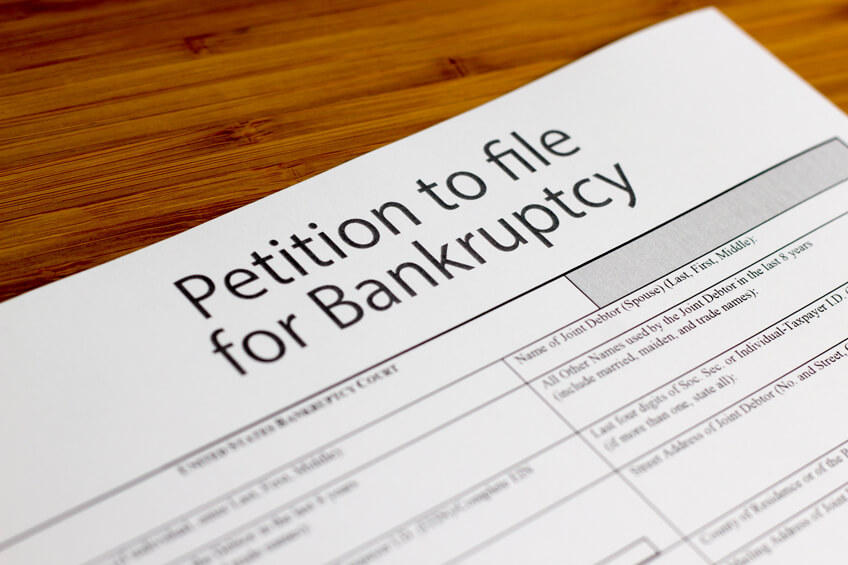Accidents



If you are looking to pay back or restructure significant debts, filing a Chapter 13 bankruptcy may be an option. Chapter 13 bankruptcy allows debtors to repay their debts through a repayment plan over the course of three to five years. Once the repayment is completed, the majority of the remaining debts are eliminated.

If you need help filing through Chapter 13, a Florida bankruptcy lawyer from the Law Firm of Hoskins, Turco, Lloyd & Lloyd can help.
Chapter 13 bankruptcy is the right decision for many individuals looking to restructure their debts. The benefit of filing under Chapter 13 is that, in most instances, debtors may retain all or most of their assets while repaying a portion of their debts. At the end of the repayment plan, remaining debts are often wiped out.
If you are considering filing Chapter 13 bankruptcy, you need to understand the difference between secured and unsecured debts and what is deemed to be dischargeable.
Most dischargeable debts under Chapter 13 bankruptcy are unsecured. Unsecured debt is any debt or financial obligation not protected by a guarantor. In the event someone defaults on an unsecured debt, the lender has to file a lawsuit to collect what they are owed.
Unsecured debts, also considered non-priority, are typically dischargeable through a Chapter 13 bankruptcy filing. The most common types of unsecured debts you may be able to manage with Chapter 13 include the following:
If you are looking to have these debts discharged, you will likely need to pay a portion through repayment. As long as you abide by your court-ordered repayment plan, any remaining balances will be discharged at the end of your repayment period.
Secured debts are obtained when a borrower puts up an asset with their lender as collateral for their loan. In the event a borrower defaults on a secured debt, the lender has the right to collect the asset to repay the remaining balance of the money originally paid to the borrower.
Most of the time, secured debts are not managed with a Chapter 13 bankruptcy filing; however, they can be. The most common type of secured debt managed through Chapter 13 is mortgages or other types of home loans.
When a borrower stops making payments on a secured loan, the lender can foreclose on their house or repossess their car even if they file for Chapter 13 bankruptcy. However, if a borrower meets certain conditions, they may be able to save their home through a process called lien stripping.
When a debt is stripped, it is split into secured and unsecured portions. The secured amount must be included in the repayment plan, while the unsecured part can be discharged at the end of the repayment period.
If you are looking into your bankruptcy options, you will also come across filing through Chapter 7 bankruptcy.
Whether you file Chapter 13 or Chapter 7 ultimately depends on your situation. Your attorney can advise on your best path.
However, certain debts are only dischargeable through Chapter 13. The most common include the following:
Assuming you meet the requirements for Chapter 13 bankruptcy, you will receive notification of a repayment plan, including the specific amount of debt you are required to repay before any remaining amount is discharged. Repayment plans are based on factors like your income and expenses, the types of debt you have, and the value of any property you own.
Once you reach the end of your repayment period, the remaining dischargeable balances are wiped out, in most cases, you can start on a new journey with your financial health.
It is important to note that there are some debts that cannot be managed through Chapter 13. If include them in your repayment plan, you must repay them in full regardless of your assets and income. Non-dischargeable debts through Chapter 13 include:
At Hoskins, Turco, Lloyd & Lloyd, our Florida bankruptcy lawyers understand how complex filing for bankruptcy can be for individuals and families. If you are struggling financially and want to learn more about whether or not bankruptcy is suitable for your situation, get in touch with a Chapter 13 bankruptcy attorney.
When you reach out to our law firm, we will explain your legal rights and options regarding bankruptcy and ensure you understand the state and federal laws that impact your situation. Call (866) 460-1990 or contact us online today to learn more.
Complete our confidential evaluation form to have your case reviewed for free by our attorneys and staff.
An attorney or intake specialist will contact you directly to discuss your case at no cost to you.
From the moment you hire us, we will stand behind you, fighting to get the results you deserve.
As the law firm Florida has trusted for over 40 years to fight on their behalf, we are more than ready to represent you. Put our experience and reputation to work. If you need help with any legal matter, whether it’s a personal injury, workers’ compensation, disability or bankruptcy case, contact us now. The consultation is absolutely free.
Get the answers you need. We’ll review your case today, for free.
"*" indicates required fields